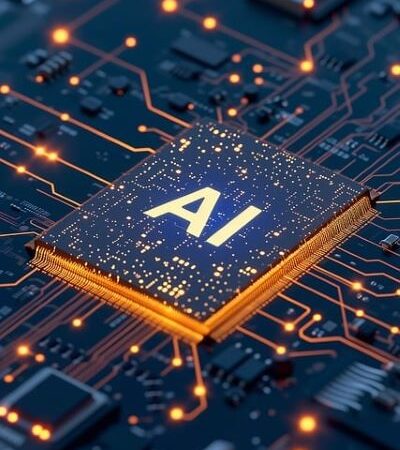Through speaking to employers and the creators of Artificial Intelligence (AI) software, we know that AI continues to shape and revolutionise the landscape of future careers; AI is not going anywhere, it is evolving at pace. In this blog, Matt Vickers, Careers Consultant, and Nicola Meikle, Careers Information Adviser, share snippets gleaned from news articles and seminars.
What does this mean for jobs?
This BBC article highlights that AI still isn’t capable of performing tasks that involve human qualities: BBC Worklife – The jobs AI won’t take yet
The article categorises jobs into three categories, based on how “insulated” they are from the effects of AI – well at least for a while!
The three categories are:
- Creative – jobs where ideas are generated and something new is developed e.g. science, medicine and law.
- Interpersonal skills – some examples of jobs which require a deep understanding of people are investigative journalists, business consultants and nurses.
- Practical-based – jobs where you are constantly dealing with a new situation and problem solving in unpredictable environments e.g. electricians and plumbers. The article also states this third category of jobs will probably be the hardest to automate.
What’s more, an online seminar in May 2024 from AdvanceHE looked at how public and professional bodies see the emerging role of AI. Three speakers were in attendance from:
- SFEDI Group – the awarding organisation specialising in business enterprise and business support in small and medium-sized enterprises (SMEs)
- NHS England – Improvement and Education
- Newcastle University’s Alan Turing Institute – an academic, specialising in skills in data science, and government adviser
Key points to takeaway:
- Many students will end up in SMEs at some point in their career. SMEs look for generalists who can flexibly do many things, rather than have different (e.g. IT) specialists doing one thing only, in the way large companies do.
- SMEs don’t have the resources to employ AI specialists. Therefore, higher education institutions (HEIs) should equip students to be AI-ready, versatile, and who are willing to learn and develop (as AI invariably develops).
- AI will not take over jobs in the NHS! AI cannot care for patients; it was felt that AI will complement what the NHS does, allowing it to be more efficient. This is important as the population ages and people are living longer with chronic illnesses.
Lots of work is underway to bring together different professional bodies interested in AI (including Institute of Mathematics and its Applications, Royal Statistical Society and British Computer Society) in order to define standards of ethics and approaches: Alliance for Data Science Professionals
You can also view our webpages, “Guidelines on the use of Generative AI (GenAI) in the recruitment process” for more support on how GenAI can help, some pitfalls to be aware of and suggestions on how to prompt GenAI effectively:
Undergraduates: https://careers.ed.ac.uk/students/undergraduates/make-it-happen/guidelines-use-generative-ai-recruitment-process
Taught Postgraduates: https://careers.ed.ac.uk/students/postgraduates/taught-postgraduates/make-it-happen/guidelines-use-generative-ai-recruitment
PhDs and MRes students: https://careers.ed.ac.uk/students/postgraduates/phds-and-mres-students/make-it-happen/guidelines-use-generative-ai
Graduates: https://careers.ed.ac.uk/graduates/make-it-happen/guidelines-use-generative-ai-recruitment-process
We’ll be talking more about AI this semester on Inform.ed… watch out for our next post where we look at AI and the recruitment process.
(Image credit: Aristal Branson from Pixabay)


